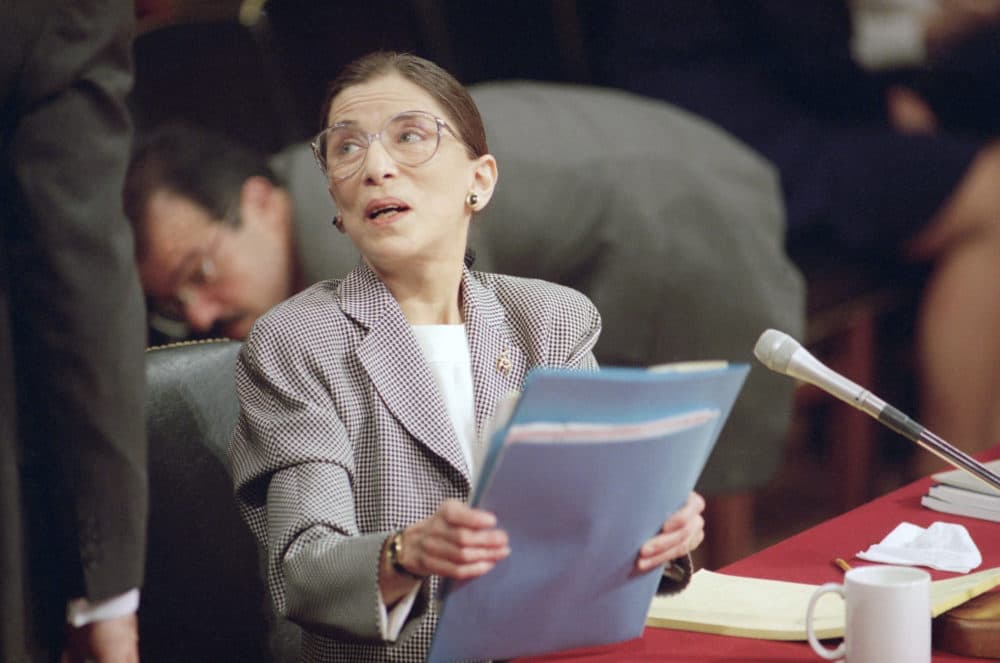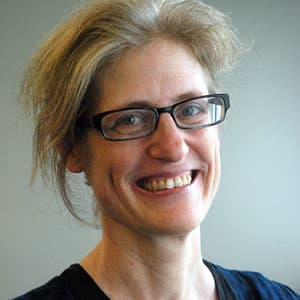Advertisement
Amherst College Trustee Andrew Nussbaum On Clerking For Ruth Bader Ginsburg
Resume
The chair of the Amherst College Board of Trustees had a close working relationship with Ruth Bader Ginsburg. Andrew Nussbaum served as a law clerk to Ginsburg while she was on the U.S. Court of Appeals in the early 1990s, just before she landed on the Supreme Court. He also clerked in the early 1990s for Supreme Court Justice Antonin Scalia.
He joined WBUR's Morning Edition to talk about the late Justice Ginsburg's life and legacy, what she was like as a boss, and her indomitable will to push through any obstacle.
Interview Highlights
On having Ruth Bader Ginsburg for a boss
“Justice Ginsburg is a quiet and somewhat reserved person, and her clerks really became her friends. I would say that it was a bit intimidating to show up at the court the first day since her reputation preceded her, and you knew she was going to be brilliant. You didn't necessarily know when you arrived that she would also be a brutal editor of your prose. And one of the great joys of working for her was watching her turn what I thought was my excellent, well-educated, collegiate writing of 10 pages into a crisp legal opinion of maybe three and a half or four pages by the time she was done editing.”
"I don't think she ever expected that she would wake up one morning and the world and the legal case law ... would suddenly mirror Justice Ginsburg's legal vision. Quite, quite the opposite. She recognized it was a process and that she had a role to play in that process."
On Ginsburg’s aisle-crossing friendship with Supreme Court Justice Antonin Scalia
“I don't think I would have gotten the job with Justice Scalia without Justice Ginsburg's support. So I had applied, and I'd actually had a couple of interviews with a couple of different justices, including Justice Scalia. And I had not gotten any proposals, any offers. And so I had a little bit given up. Then one day, I got a phone call from Justice Ginsburg saying you ought to stay by the phone because Justice Scalia is going to call you. And I said, ‘Well, why?’ And she said, ‘Well, because I told him he should hire you.' And sure enough, about 10 minutes later, Justice Scalia called and said, ‘Ruth told me I should hire you. Do you want to come work for me?’ And that was it. They both consented to my mutual relationships in advance. And it was indeed a pleasure to clerked for each of them.”
On where her sense of optimism came from
“I think you have to go back. Well, before she was ever a lawyer, let alone a judge, I think, to understand what made the justice click and what motivated her. And, you know, she's the daughter of immigrants. She grew up through public schools in New York, she went to excellent colleges, but, you know, with substantial support. And I think that she had obstacles put in her way long before she ever was considered for the Supreme Court or even arguing cases as a young lawyer. And so I don't think she ever expected that she would wake up one morning and the world and the legal case law and the Supreme Court's perspective on issues of women's rights and equal protection and due process would suddenly mirror Justice Ginsburg's legal vision. Quite, quite the opposite. She recognized it was a process and that she had a role to play in that process.”
"She was an incredibly warm person. There wouldn't be a personal aspect of your life that she wouldn't want to know about if you were willing to share it."
On her personal warmth and thoughtfulness
“She was an incredibly warm person. There wouldn't be a personal aspect of your life that she wouldn't want to know about if you were willing to share it. Even later in life; I have three daughters, and every phone call or conversation I had with her would start with her asking about, you know, what are the girls up to? And what are they doing? She was also a brilliant writer of thank you notes. If you sent her a card or flowers on her birthday, or even sometimes just an email saying, you know, I read that opinion, must have been a hard case, you always would get back a little handwritten note on a card stamped through the regular mail, you know, two or three sentences. Thanks for your note. Look forward to seeing you soon. Love to the girls.”
This article was originally published on September 20, 2020.
This segment aired on September 20, 2020.
